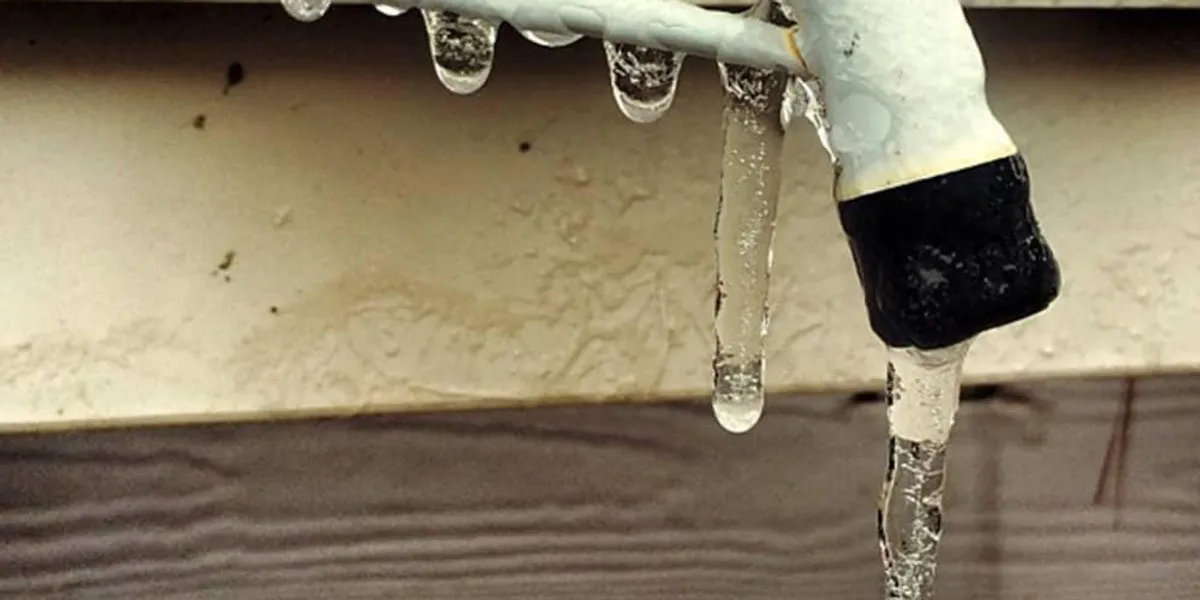Crucial Advice to Prevent Frozen Pipes in Cold Weather: Expert Insights
Crucial Advice to Prevent Frozen Pipes in Cold Weather: Expert Insights
Blog Article
Just how do you feel about How to Prevent Your Pipes From Freezing?

Cold weather can damage your pipes, especially by freezing pipes. Right here's how to avoid it from happening and what to do if it does.
Intro
As temperatures drop, the threat of frozen pipelines increases, potentially causing pricey repairs and water damages. Recognizing exactly how to prevent frozen pipes is crucial for property owners in chilly climates.
Prevention Tips
Protecting prone pipelines
Wrap pipelines in insulation sleeves or make use of warmth tape to shield them from freezing temperatures. Concentrate on pipes in unheated or external locations of the home.
Home heating methods
Maintain indoor rooms sufficiently heated up, specifically locations with plumbing. Open up cabinet doors to permit cozy air to flow around pipes under sinks.
Just how to determine frozen pipes
Search for reduced water flow from faucets, unusual smells or noises from pipelines, and noticeable frost on revealed pipes.
Long-Term Solutions
Architectural changes
Consider rerouting pipes away from exterior wall surfaces or unheated areas. Add added insulation to attic rooms, basements, and crawl spaces.
Updating insulation
Invest in premium insulation for pipes, attics, and walls. Correct insulation helps maintain regular temperature levels and reduces the danger of icy pipes.
Shielding Outdoor Plumbing
Garden pipes and outside taps
Separate and drain yard tubes before wintertime. Set up frost-proof spigots or cover exterior faucets with shielded caps.
Comprehending Frozen Pipes
What creates pipelines to freeze?
Pipes freeze when revealed to temperature levels below 32 ° F (0 ° C) for expanded durations. As water inside the pipelines ices up, it expands, putting pressure on the pipeline wall surfaces and potentially creating them to break.
Threats and problems
Frozen pipes can lead to supply of water interruptions, residential property damages, and pricey repair work. Burst pipes can flood homes and trigger considerable architectural damages.
Indications of Frozen Water Lines
Recognizing frozen pipelines early can prevent them from breaking.
What to Do If Your Pipelines Freeze
Immediate actions to take
If you presume frozen pipes, keep taps available to soothe stress as the ice melts. Utilize a hairdryer or towels soaked in hot water to thaw pipes slowly.
Verdict
Avoiding frozen pipelines calls for positive actions and fast responses. By comprehending the causes, indicators, and preventive measures, home owners can secure their plumbing during winter.
Helpful Tips to Prevent Frozen Pipes this Winter
UNDERSTANDING THE BASICS: WHY PIPES FREEZE AND WHY IT’S A PROBLEM
Water freezing inside pipes is common during the winter months, but understanding why pipes freeze, and the potential problems it can cause is crucial in preventing such incidents. This section will delve into the basics of why pipes freeze and the associated problems that may arise.
THE SCIENCE BEHIND FROZEN PIPES
When water reaches freezing temperatures, it undergoes a physical transformation and solidifies into ice. This expansion of water as it freezes is the primary reason pipes can burst. As the water inside the pipe freezes, it expands, creating immense pressure on the walls. If the pressure becomes too great, the pipe can crack or rupture, leading to leaks and water damage.
FACTORS THAT CONTRIBUTE TO PIPE FREEZING
Low Temperatures: Extremely cold weather, especially below freezing, increases the risk of pipes freezing. Uninsulated or Poorly Insulated Pipes: Pipes located in unheated areas, such as basements, crawl spaces, or attics, are more prone to freezing. Insufficient insulation or lack of insulation altogether exacerbates the problem. Exterior Wall Exposure: Pipes running along exterior walls are susceptible to freezing as they encounter colder temperatures outside. Lack of Heating or Temperature Regulation: Inadequate heating or inconsistent temperature control in your home can contribute to frozen pipes. PROBLEMS CAUSED BY FROZEN PIPES
- Pipe Bursting: As mentioned earlier, the expansion of water as it freezes can cause pipes to burst, resulting in significant water damage.
- Water Damage: When pipes burst, it can lead to flooding and water damage to your property, including walls, ceilings, flooring, and personal belongings.
- Structural Damage: Prolonged exposure to water from burst pipes can compromise the structural integrity of your home, leading to costly repairs.
- Mold and Mildew Growth: Excess moisture from water damage can create a favorable environment for mold and mildew growth, posing health risks to occupants.
- Disrupted Water Supply: Frozen pipes can also result in a complete or partial loss of water supply until the issue is resolved.
WHY CERTAIN PIPES ARE MORE PRONE TO FREEZING
- Location: Pipes located in unheated or poorly insulated areas, such as basements, crawl spaces, attics, or exterior walls, are at higher risk of freezing.
- Exterior Pipes: Outdoor pipes, such as those used for irrigation or exposed plumbing, are particularly vulnerable to freezing as they are directly exposed to the elements.
- Supply Lines: Pipes that carry water from the main water supply into your home, including the main water line, are critical to protect as freezing in these lines can affect your entire plumbing system.
- Underground Pipes: Pipes buried underground, such as those connected to sprinkler systems or outdoor faucets, can be susceptible to freezing if not properly insulated.
https://busybusy.com/blog/helpful-tips-to-prevent-frozen-pipes-this-winter/
.jpg)
I found that piece on Helpful Tips to Prevent Frozen Pipes this Winter while doing a search on the search engines. Liked our piece? Please share it. Let someone else discover it. We appreciate reading our article about How to prepare your home plumbing for winter weather.
Call Us Today Report this page